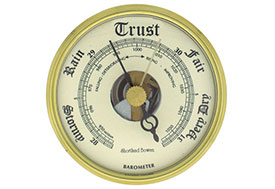
Putting money into a trust can be an effective way of passing wealth on to others, particularly your children, without losing too much in tax. But investors must be aware that it is not enough simply to put your money into a trust and forget about it. The money which the trust earns is subject to tax; and an investor needs to seek careful advice if the full benefit is to be gained of using wealth in this way.
In the UK there are seven basic types of trust, and it is vital to choose the right one depending on your circumstances and those of your beneficiaries. Overseas investors might go for Non-Resident Trusts; but beware! The tax rules for this type of trust are very complicated. Make sure your advisor is aware of all the rules. These are laid out on the HM Revenue & Customs website.
As with all legal matters, ignorance of the law is no excuse! There’s plenty of information available for you and your advisor. The ideal starting place is the official government website. This will give you details of all the various trusts and how much tax – if any – you or your beneficiaries will pay on each one.
In the United States the situation is rather different. It may now actually be sensible to take money out of a trust and pass it to the beneficiary early, as the amount of tax the beneficiary will pay may be significantly lower than how much the trust would pay. Individuals can have as much as $406,750 of ordinary income before the top tax rate applies to them. In contrast, this year trusts must pay the top rate on any income over $12,150.
Even though we are into 2014, any investor with money in a US trust still has time to take advantage of a rule that lets trusts and beneficiaries elect to count any distribution made in the first 65 days of the year against the previous year. And this can work even for comparatively modest amounts.
For example, a trust with $30,000 in taxable income and a single beneficiary with taxable income of $100,000 would owe $32,217 in combined taxes if the trust makes no distribution for 2013, as compared to $29,340 in taxes if it passes $20,000 to the beneficiary. Moving $20,000 of income out of the trust cuts the amount of tax it owes from $10,923 at a 43.4% marginal tax rate to $2,446 at a 33% marginal rate. The beneficiary would owe more tax ($26,893 as compared to $21,293) but the beneficiary is in the 28% bracket. The combined overall savings from making the distribution would be $2,877.
But whether your trust is in the UK or the US, the message is clear: make sure that your advisor is aware of the latest rules to maximize your trust funds.
If you need a professional advice on trusts and foundations, please contact us:
Tel: +44(0)207 725 6900
Email: enquiries@orcap.co.uk


